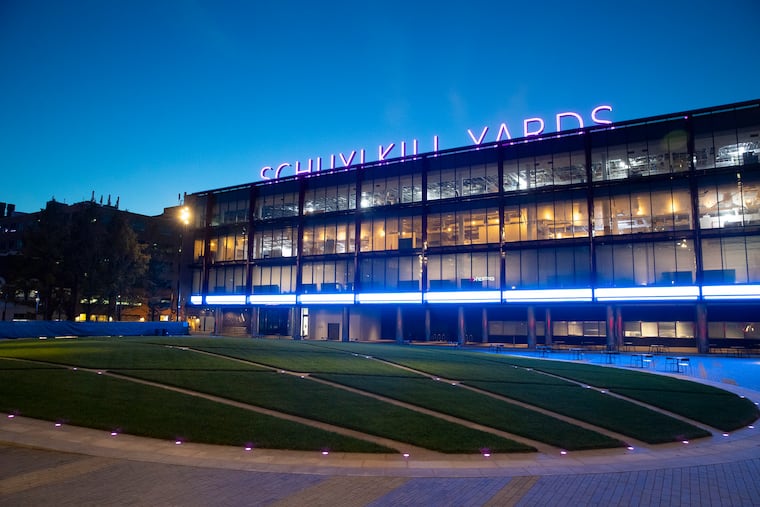Bill would block companies from getting second round of Keystone Opportunity Zone tax breaks
The legislation came in response to a Commonwealth Court decision last year that Dechert LLP could get another round of Keystone Opportunity Zone benefits if it moved to an eligible building.

A bill in the Pennsylvania House of Representatives would prohibit companies from collecting a second round of lucrative Keystone Opportunity Zone tax breaks if they move from an expired zone to a new one.
If it becomes law, the bill would limit the impact of a Commonwealth Court decision last summer that law firm Dechert LLP could collect a second round of tax breaks if it moved from the Cira Centre into a new building that Brandywine Realty Trust wants to build in the Schuylkill Yards development near 30th Street Station.
The Pennsylvania Supreme Court on Wednesday upheld that lower-court decision, which found that a “prohibition on ‘zone-hopping’ is simply not contained in the statute,” and suggested that the decision against the Pennsylvania Department of Community and Economic Development “may generate a legislative response.”
Now it has.
Not only does the bill prohibit zone hopping, it would also limit the companies to 10 years of KOZ breaks on most state and local taxes and exclude real estate investment trusts, venture capital funds, and hedge funds — types of businesses that flocked to the Cira Centre after it opened in 2005 — from collecting the benefits.
» READ MORE: Dechert can get a second round of KOZ tax breaks, court rules (from June 2020)
“This simple legislative fix would protect our commonwealth from losing millions of dollars in future tax revenues by ensuring that companies pay their fair share of taxes, no matter where they’re located,” a spokesperson for the community and economic development department said Thursday.
“Zone-hopping disadvantages the communities left behind and taxpayers across the commonwealth, both of whom agreed to forgo much-needed state and local tax revenue for a limited time in exchange for the promise of sustained economic development and sustained business presence,” the department said.
The bill allows exceptions if moving from an expired zone “is necessary to meet the expansion or operational needs of the business and the business anticipates a significant financial impact on the zone into which the business is relocating.”
That makes sense, said Peter Kelsen, a real estate lawyer at Blank Rome LLP. “You want to have the ability for some level of discretion,” he said.
The bill’s prime sponsor is State Rep. Karen Boback, a Republican from Northeastern Pennsylvania. Mike Zabel, a Democrat from Delaware County, joined Boback in introducing the bill earlier this year. The bill has 33 additional cosponsors from both parties.
It’s not clear whether the bill would affect Dechert’s ability to collect the tax breaks if it moves to one of the buildings that Brandywine, a real estate investment trust, wants to build. It’s also not clear whether Dechert, which has had a shrinking footprint in the Cira Centre, still intends to move.
Neither Dechert nor its lawyer in the case, Joseph C. Bright, of Cozen O’Connor, responded to requests for comment Thursday. Brandywine, Dechert’s current landlord at the Cira Centre and possible future landlord at Schuylkill Yards, also did not respond.
When the Pennsylvania legislature created Keystone Opportunity Zones in 1999, they were supposed to be a onetime bonanza to spur development in what former House member Joseph Gladeck, the bill’s original sponsor, described to The Inquirer last year as “bombed out” areas of the state.
But legislators couldn’t resist adding more sites, including the Cira Centre location in 2002 and the nearby properties where Brandywine wants Dechert to move, in 2012. Brandywine told investors in February that it planned to start construction at one of the KOZ parcels, a $287 million office, lab and apartment tower at 3025 John F. Kennedy Blvd. in March.
It is not known how much Dechert benefited from the tax breaks when it moved from what was then called the Bell Atlantic Tower at 1717 Arch St. to the Cira Centre at 2929 Arch St. Under the KOZ program, the city alone provided an estimated $400 million in tax breaks combined to firms in the Cira Centre from the time it opened in 2005 until they expired at the end of 2018.
Philadelphia’s KOZ website says the tax breaks for some of the Schuylkill Yards parcels expire next year. City Council has authorized the Kenney administration to seek extensions for certain sites at the Navy Yard, in University City and at the former refinery site in Southwest Philadelphia, a spokesperson for the Commerce Department said, without specifying the Brandywine sites.
Any extensions would last 10 years from the date of approval.
The spokesperson said the city has no plans to seek extensions this year, “but is prepared to reset the term of benefits for those sites in future years when a developer is ready to provide significant business attraction or retention outcomes as a result of the extended tax benefits.”